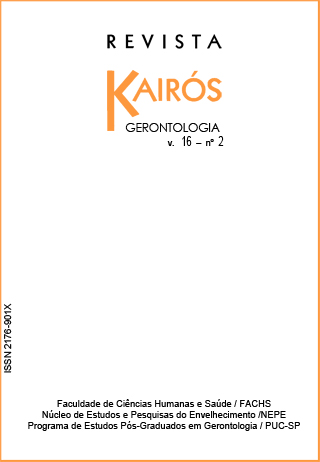Reflexões Sobre o Uso da Escala de Depressão Geriátrica (GDS-15) em Idosos Hospitalizados
DOI:
https://doi.org/10.23925/2176-901X.2013v16i2p307-316Palavras-chave:
Idosos Hospitalizados, Depressão, Escala de Depressão Geriátrica (GDS).Resumo
A desordem mental mais comum na terceira idade é a depressão. Os sintomas depressivos nem sempre se apresentam de maneira típica. Nos idosos as queixas somáticas são frequentes e podem ser reforçadas pela hospitalização, tornando os idosos mais suscetíveis ainda a sintomas depressivos. Isso se avigora numa ala geriátrica, onde os pacientes lá internados são muitas vezes mais frágeis, poliqueixosos, e com múltiplas comorbidades. Fundamentado a partir deste contexto, o presente trabalho teve como objetivo buscar reflexões críticas sobre o uso da Escala de Depressão Geriátrica (na versão reduzida - GDS-15), amplamente utilizada, como método para avaliar o quadro depressivo em idosos internados numa enfermaria de geriatria. Este estudo é, sobretudo, qualitativo, cuja coleta de informações envolveu a aplicação da escala proposta. Os resultados incitaram discussões acerca da necessidade de reavaliação da confiabilidade da Escala, podendo ser esta pouco suficiente/adequada para medir os sintomas depressivos destes pacientes específicos.Downloads
Publicado
2013-06-30
Como Citar
Ortiz, B. R., & Wanderley, K. da S. (2013). Reflexões Sobre o Uso da Escala de Depressão Geriátrica (GDS-15) em Idosos Hospitalizados. Revista Kairós-Gerontologia, 16(2), 307–316. https://doi.org/10.23925/2176-901X.2013v16i2p307-316
Edição
Seção
Relato de Experiência


